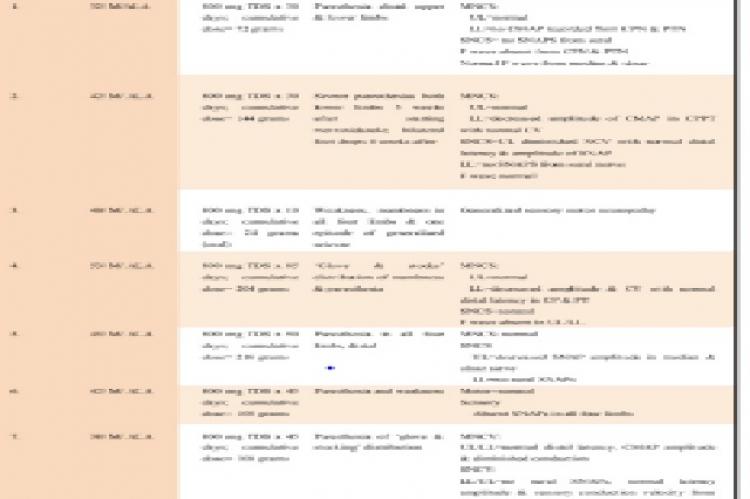Metronidazole, an imidazole derivative is a commonly used drug to treat ameobic liver abscess and many more infections. Side effects include nausea, vomiting, and metallic taste. Uncommonly, peripheral neuropathy on prolonged use has been described which predominantly affect peripheral nerves. In this series seven cases of metronidazole-induced neuropathy from a Tertiary Care Hospital in Northern India are being reported. Patients were all males with mean age of 41.7±6.4 years. The average cumulative dose of metronidazole was 90.7±73.3 grams in this study and mean duration of drug therapy was 50±30 days. Neuropathic symptoms started 2-3 weeks after the initiation of therapy. Neuropathy symptoms consisted of moderate to severe paresthesias in all and glove and stocking distribution of numbness in two cases. Generalized seizures occurred in one case. Electrophysiological study revealed absent sural sensory nerve action potential (SNAPS) in all and diminished sensory nerve conduction velocities (SNCVs) in upper limbs in four and normal in 3 cases. Motor nerve conduction were normal in two and rest five had reduced compound muscle action potential (CMAP) and motor nerve conduction velocity (MNCV) in lower limbs.
View:
- PDF (555.89 KB)


